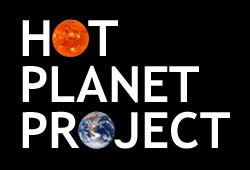Here, in my neck of the woods, is a cause for hope and an example to follow. Boston city councilor Michelle Wu read the IPCC report cover to cover.
And in an email to constituents, she summarized the report, spelled out what it means for those of us here in the Northeast US, and connected it to work of our city government.
Here’s her email:
This week we saw the results of a 2-year, multinational effort with over 1,000 scientists analyzing the best available data and science on climate change. The United Nations Intergovernmental Panel on Climate Change’s 700+ page report painstakingly substantiates the urgency of this very moment: our survival on the planet depends on taking immediate action at a scale of collaboration and change never before seen in humankind’s history. We must transform our society and our economy to eliminate emissions of greenhouse gases and other pollutants by reducing energy demand, moving to renewable sources like wind and solar for our energy supply, and rethinking urban planning and land use.
And we have just twelve years to do this.
I finished reading the full report yesterday. Much of it describes the difference between a world at 2°C (3.6°F) of warming over pre-industrial temperatures—the previous threshold in international agreements—compared to 1.5°C (2.7°F) of warming. It turns out that every fraction of a degree makes a huge difference for survival, causing changes in flooding and storms, heat and drought, food production and disease. The higher threshold would mean several hundred million more people vulnerable to poverty by 2050, twice as many exposed to climate-change induced water stress, extinction of animal and plant species, and much more uninhabitable land. We must stick to a limit of 1.5°C, but it won’t be easy. At the current rate of emissions, the planet is on track for 3°C of warming. Last year we already reached 1°C, and if we do nothing we’ll be at 1.5°C by 2030.
If this all sounds global and too distant, the report also specifically highlighted the East Coast of the U.S. as one of the most vulnerable regions around the world. We will have even greater increases in heavy rain, intense storms, flooding, and extreme heat days than other places. And we’ve already seen this start to happen, from Hurricane Michael to Boston’s king tides and bombogenesis storms a few months ago. Plus we see that the destructive impacts of climate change are concentrated on those who contributed least to the problem—countries and communities of color, the poor, and the medically vulnerable.
Still, my conclusion is that the report is ultimately hopeful. It shows that staying under 1.5°C is possible and describes how each sector has to transition, from industry to buildings to transportation. Most importantly, the steps that we need to take for resiliency can align perfectly with equity, inclusion, and democracy.
In other words, fighting climate change is our best chance to eliminate poverty and reduce inequality.
All of us have a role to play in this transformation, from changing our daily habits to live more sustainably, to advocating within our places of employment, and most importantly holding our political representatives accountable.
I’m proud of the steps we’ve taken on the Council, passing Community Choice Energy to ramp up renewables, implementing a plastic bag ordinance that will take effect in December, and advocating for more sustainable transportation around parking, the MBTA, and a car-free day for the city. But we must take bolder, faster action. On Monday I’ll file an ordinance in partnership with Councilor Matt O’Malley to expand the power of our Conservation Commission to ensure resiliency in regulating development. And there’s much more to go.
Please keep the urgency of addressing climate change, poverty, and inequality at the forefront of your advocacy at all levels. But please especially get involved with our local efforts. Boston can be a leader and embolden other cities to join us. Together we can make the next 12 years the most innovative, transformational, and inclusive period in human history. Let’s get to work!

